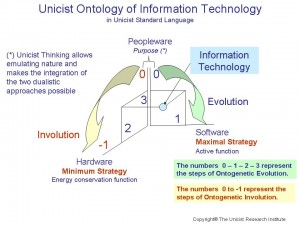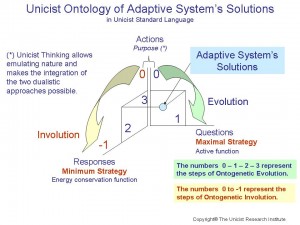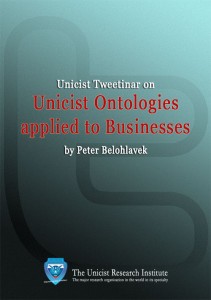Computers are, objectively, the most powerful tool to support teaching processes. The objective of education is to provide the necessary knowledge to adapt to reality and to work.
 But this adaptation implies integrating to the social environment and developing the necessary influence to make it grow in order to expand the possibilities for future generations.
But this adaptation implies integrating to the social environment and developing the necessary influence to make it grow in order to expand the possibilities for future generations.
Work implies generating added value and receiving the counterpart of this value.
Computers might generate paradoxical results
Reality is an adaptive system which, by definition, is complex.
Complexity implies, among other aspects, that the elements of reality have a fuzzy definition and that interdependency and their perception is ambiguous within an environment that has open boundaries and requires the use of integrative logic in order to be apprehended.
With dualistic thinking no apprehension of “actual” reality is possible
Computers provide a safe environment that gives instantaneous answers based on a dualistic logic, avoiding the need of facing the uncertainty and ambiguity of reality.

Therefore, the use of computers in teaching processes generates a parallel reality in which individuals know that they are in a disambiguated environment where they can dominate the reality that is being taught.
Growth implies being able to adapt to an environment that is wider, more complex or requiring more energy than the one the pupil is dealing with.
These parallel realities computers can generate become, for lazy minds, George Orwell’s “Big Brother”.
Computers empower the few pupils who are driven by their need of learning but the mass tends to look for a big brother to follow, while seeking to satisfy their individualistic needs.
Teachers should change their roles
The mass of teachers adopted the energy conservation role of teaching in the educational system. They had no need to invest the necessary energy to lead individual learning processes. It was not demanded from them. That is why Bloom’s taxonomy of learning did not spread and ended in schools for gifted pupils.
If teachers do not adopt the role of guiding learning processes, computers produce a thinking inhibiting environment for the mass.
The change of the role of teachers requires a generational change if there is a decision to empower the knowledge acquisition of pupils.
This decision has “no rating”, because empowering the assumption of responsibilities requires a higher level of energy consumption while “rating” demand a lowering of the energy consumption.
An adequately disguised degradation has high rating while upgrades have none.
Peopleware, software and hardware
Every system needs to be focused on “peopleware”, is put into action by the software and the energy conservation is provided by the hardware.
 The use of computers in education requires defining the peopleware first, then the software and finally installing the necessary hardware.
The use of computers in education requires defining the peopleware first, then the software and finally installing the necessary hardware.
Evolution requires having the concept of the peopleware including both pupils and teachers in order define an educational system.
Involution occurs when hardware solutions precede the software solutions. But both degrade if the peopleware has not demonstrated to be a valid purpose.
Involution is always less energy consuming than evolution. That is why it is very difficult to switch from involution to evolution and very easy the other way around.
Developing vs. underdeveloping Countries
Developing cultures naturally follow the rules of evolution while underdeveloping cultures tend to use shortcuts in their evolution that produce paradoxical effects.
The massification of computers in schools without having clarified the peopleware’s purpose and solved the software alternatives becomes an end in itself and degrades the educational processes. That is why it has rating. It provides a magical solution to a problem that requires a cultural change management strategy.
The effect is necessarily a degradation of the adapting capacity of the pupils while a parallel reality is being fostered and transformed into an addiction to avoid assuming the responsibility of thinking and / or reflecting.
A palliative
Parents need to assume the responsibility of leading the education of their children. We strongly recommend them to generate a real environment where their children have to adapt and solve problems that are beyond the limits of computers.
If you can achieve this goal, the mismanagement of computer aided education will be compensated and transformed into a functional process. If not, you will be seeing your children entering the “Animal Farm” looking for the “Big Brother”.
Learn more about the trend of ontology based solutions for businesses:
http://www.unicist.net/obs.shtml
Peter Belohlavek and Diana Belohlavek
NOTE: The Unicist Research Institute is the major research organization in the world in its specialty based on more than 3,500 researches in complexity science, until September 2010, applied to individual, institutional and social evolution. The applicative researches are based on the discovery of the Ontogenetic Intelligence of Nature and the consequent Unicist Ontology of Evolution.
 “The cost of a glass is in its solid;
“The cost of a glass is in its solid;










